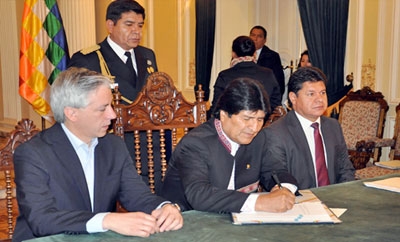The chief of Honduras’ military police force has outlined plans to double the number of officers on the streets of violence-torn San Pedro Sula, though the problem of how to attack the underlying causes of criminality remains unaddressed.
Speaking to La Prensa, Coronel German Alfaro declared the six-month-old Military Police of Public Order (PMOP) to have been a success, suggesting it had contributed to a major reduction in crimes such as extortion and robbery in San Pedro Sula.
SEE ALSO: Honduras News and Profiles
In a remarkably frank statement, Alfaro claimed some investors actually favored the continuing influence of criminal elements because “it prevents others from coming in to compete and providing city residents with better options.”
According to Alfaro, the PMOP are deployed in five key zones of the city, which in January was declared the world’s most violent peacetime city by a Mexican NGO for the third consecutive year. Alfaro said officer numbers in the city would be doubled from the current 1,000 to 2,000.
InSight Crime Analysis
The PMOP is one of the cornerstones of recently inaugurated Honduran President Juan Orlando Hernandez’s “mano dura” (“iron fist”) security policy and the troop increase is part of a plan that will see 5,000 officers in service countrywide by the end of 2014.
As a congressman, Hernandez was the architect of the PMOP, and he used his January inauguration as president to send them into the streets of San Pedro Sula and capital Tegucigalpa as part of “Operation Morazon.”
While Honduran authorities have recently lauded the success of mano dura in dismantling criminal structures and diminishing violence and street crime, such policies have long been criticized for their potential to actually strengthen gangs and criminal groups. In the absence of comprehensive social programs to address the underlying causes of crime, they also fail to offer long term solutions.
While Hernandez pledged to pursue such social policies during his presidential campaign, his administration has so far seemingly emphasized putting boots on the ground and further filling the country’s already overcrowded jails, a policy that at best offers short term solutions and at worst could exacerbate criminality in the future.

